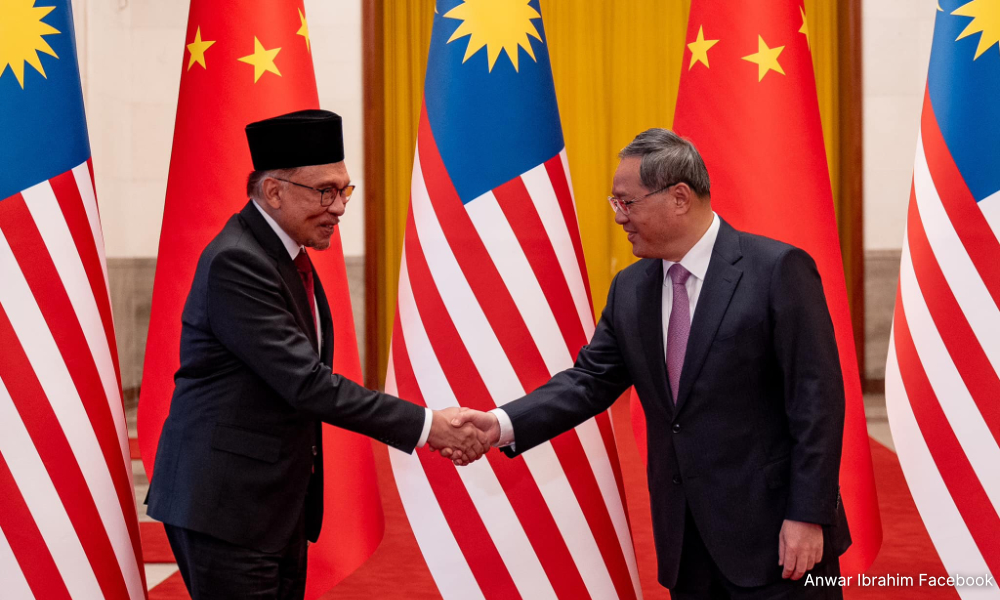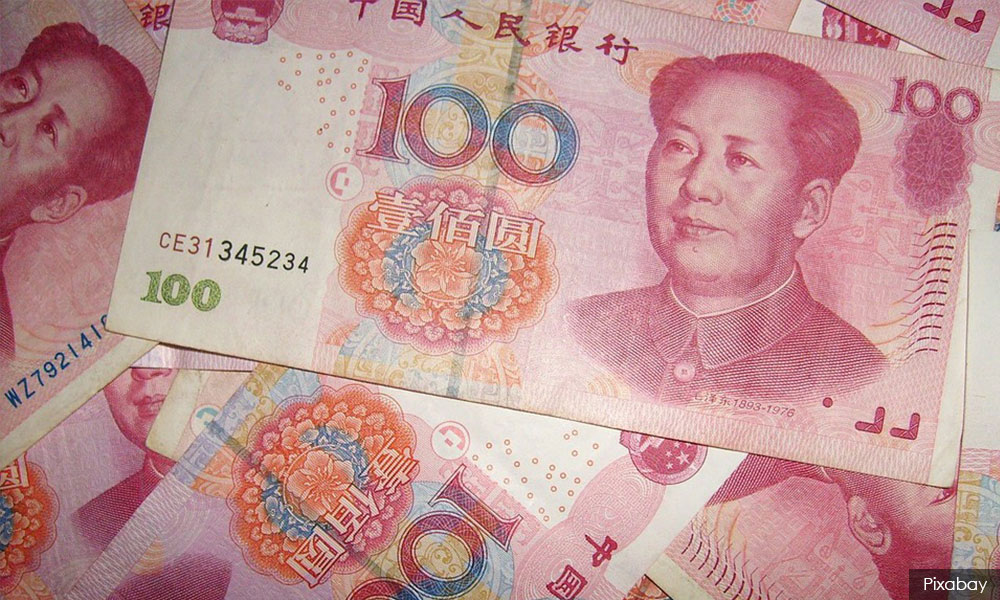On this day 50 years ago, Malaysia established diplomatic relations with China, a relationship that would blossom and flourish during the post-Cold War period until today.
Under the leadership of Prime Minister Anwar Ibrahim, there is much we can do as a country to align our strategies and action plans to achieve longer-term and mutually beneficial strategic goals with our largest trading partner.
To China, Malaysia is an important dialogue and strategic partner because of ongoing geopolitical tensions involving not just China-US relations but also China-EU relations, tensions which are not likely to abate soon.
Because of this, there is much that we can “put on the table” to have a meaningful discussion with the Chinese government to achieve policy goals that go beyond the opening up of the Chinese market for the exports of fresh durian fruits, as important as this policy is to some of our durian producers.
What we need is strategic thinking to push forward these policy goals during our engagements and interactions with Chinese officials at different levels of government - at the party and government at the city, provincial and national levels.
I will highlight three areas with specific examples.
Attracting high-quality investments
Firstly, we need to have a comprehensive and coordinated strategy to attract high-quality investments from China which can also integrate with the domestic supply chain. For example, China recently launched its third “Big Fund” to support its US$47.5 billion (RM223.4 billion) semiconductor industry.
Some of these investments can benefit Malaysian companies which have capabilities in integrated circuit design, advanced packaging, and speciality chemicals, either through participation in research and development (R&D), and technology transfer channels in China or via Chinese companies investing in Malaysia via joint venture arrangements.

Another area that the International Trade and Industry Ministry and the Malaysian Investment Development Authority (Mida) are already exploring is working with Chinese players in the electric vehicle ecosystem and supply chain including the supply of battery and electronic components.
Other new areas of high-end manufacturing worth exploring include wind turbine manufacturing because of our logistical connectivity and capabilities in the electronics used in these turbines and the manufacturing of smart agriculture machinery and components.
While the ministry and Mida can play the coordinating role, other ministries and agencies also must work together to align their objectives in the kinds of investments and technologies which they require for the sectors under their jurisdiction for these strategic goals to be realised.
Secondly, we need to have strategic engagements to unlock capital flows from Chinese investors in our capital markets and through private equity and venture capital funds based in China.
Many of these investors, where they were allowed to invest abroad, would have been mostly focused in the larger and more developed markets in the US, European Union, and Japan.
However, because of geo-political tensions and the growing importance of Southeast Asia for foreign direct investment, R&D and innovation, these investors are starting to look at Asean markets, including Malaysia.
What we need to do is offer different value propositions to these investors to allow them to diversify their portfolios in the technology, finance, commodities, manufacturing, telco, and real estate sectors, just to name a few.
This would require constant and high-level engagements between our financial regulators such as Bank Negara Malaysia (BNM) and the Securities Commission, our stock exchange namely Bursa Malaysia, and also our policymakers at the Finance Ministry.
Panda bonds
One way in which trust can be built in the financial sector between our two countries would be for the Malaysian government to issue panda bonds denominated in yuan, for specific purposes such as for the annual payments to China’s Exim bank to service the debt for the East Coast Rail Link that would amount to between RM3 to RM5 billion.
This would expose Chinese bond market investors to Malaysia and pave the way for Malaysian corporates to issue their own yuan-denominated debt instruments, issued by Chinese investment banks such as China International Capital Corporation.

These initiatives would likely open up the conversation for Chinese funds to invest in Malaysian equities and bonds and later, to deploy capital in the venture capital/private equity space.
Such capital inflows will also assist in strengthening the value of the ringgit and decrease pressure on BNM and the government of Malaysia. What we need to do is to position Malaysia as an attractive capital investment destination, with the right kind of signalling coming from the Chinese government and its financial regulators and investment institutions.
Thirdly, we need to have a comprehensive strategy on how to attract and manage the Chinese population who want to have longer-term engagements in Malaysia.
This may be through a well-thought-out Malaysia My Second Home programme that ensures that long-term pass holders from China are here in Malaysia to do legitimate business, attractive schemes for medical tourism under the Malaysian Healthcare Travel Council, or higher quality education programs which allows for better internship opportunities and even full-time work possibilities for critical sectors such as engineering, computer science, and artificial intelligence.
This needs to be managed carefully as there will be irresponsible segments of society that will politicise such moves aimed specifically at individuals from China.
One way to assuage such fears would be to open up such channels of long-term engagements to participants from other parts of the world, including individuals from developed countries wanting to seek investment, education, and work opportunities in Malaysia and the region.
My concern is that many of the current engagements which we are having with China are overly focused on short-term goals and photo opportunities rather than long-term strategic engagements for larger and more sustainable goals.
Only longer-term strategic thinking and actions can result in genuine win-win outcomes that result in shared prosperity, a phrase that both countries like to use. - Mkini
ONG KIAN MING is the former Bangi MP and former deputy international trade and industries minister.
The views expressed here are those of the author/contributor and do not necessarily represent the views of MMKtT.




No comments:
Post a Comment
Note: Only a member of this blog may post a comment.